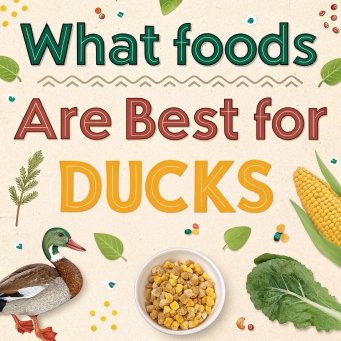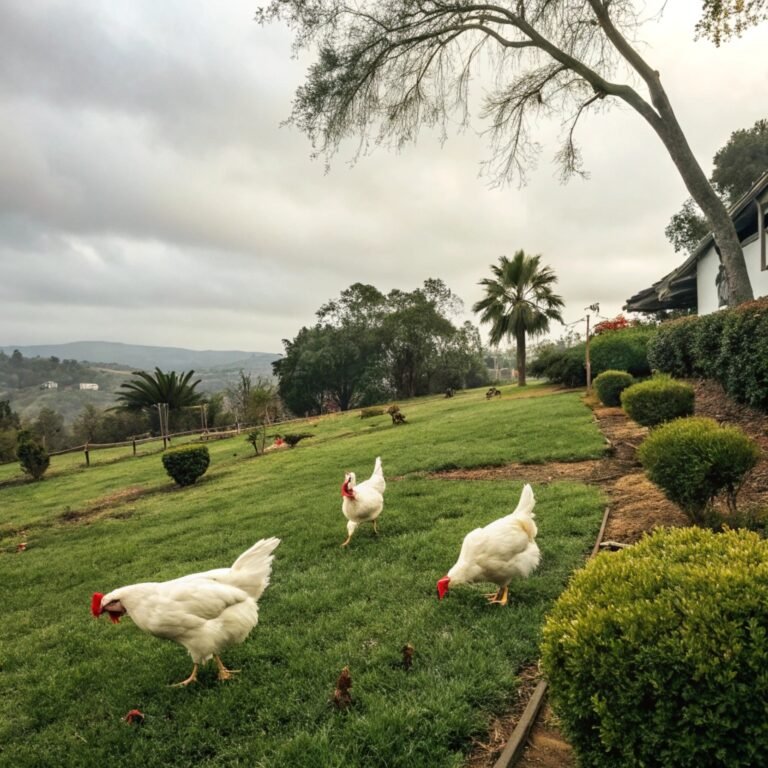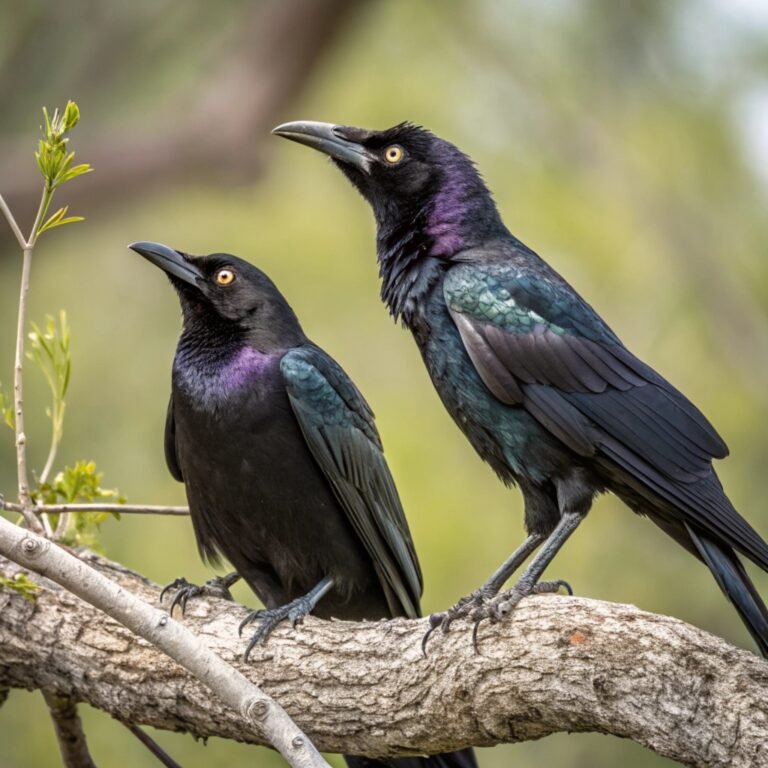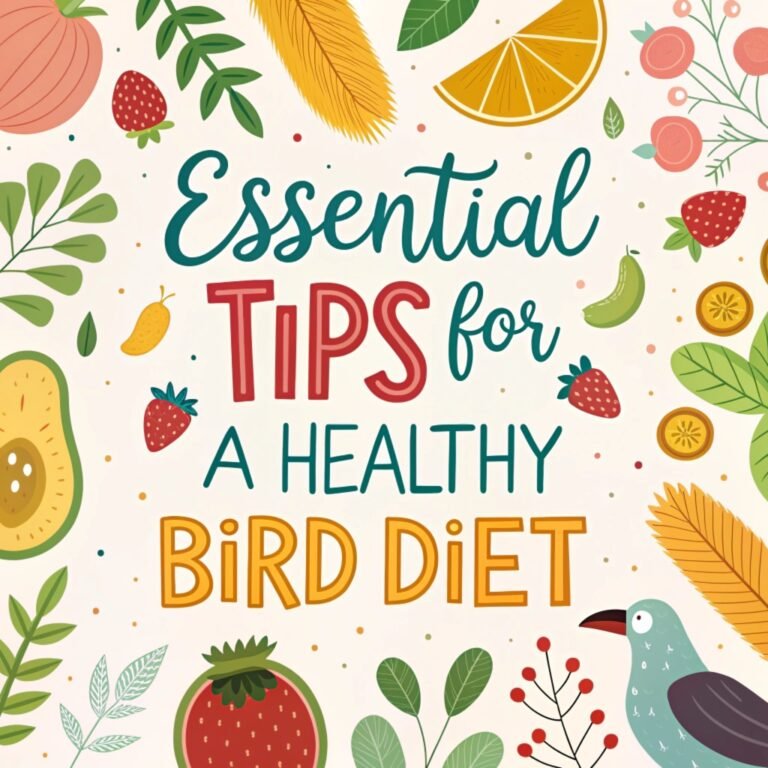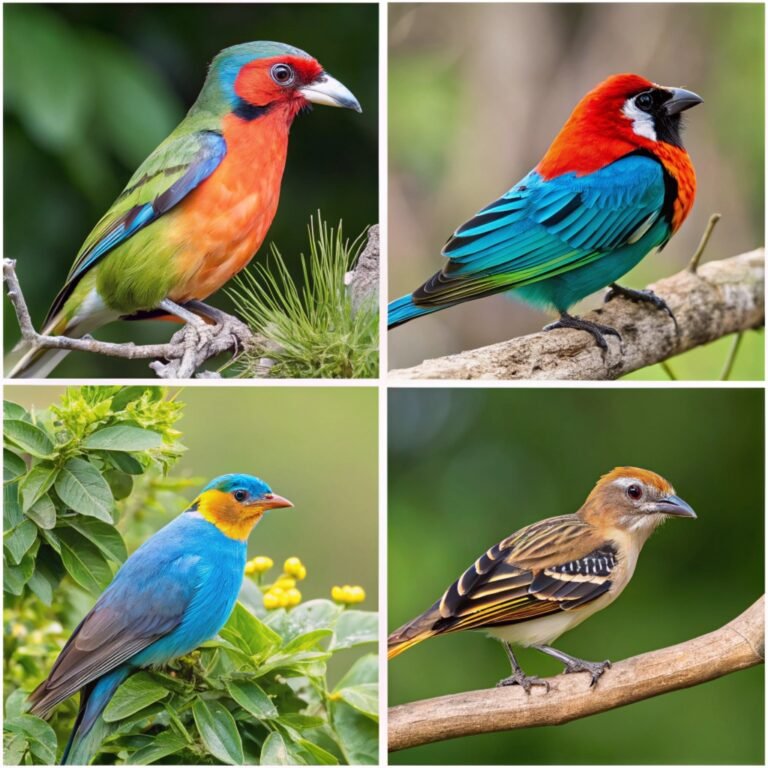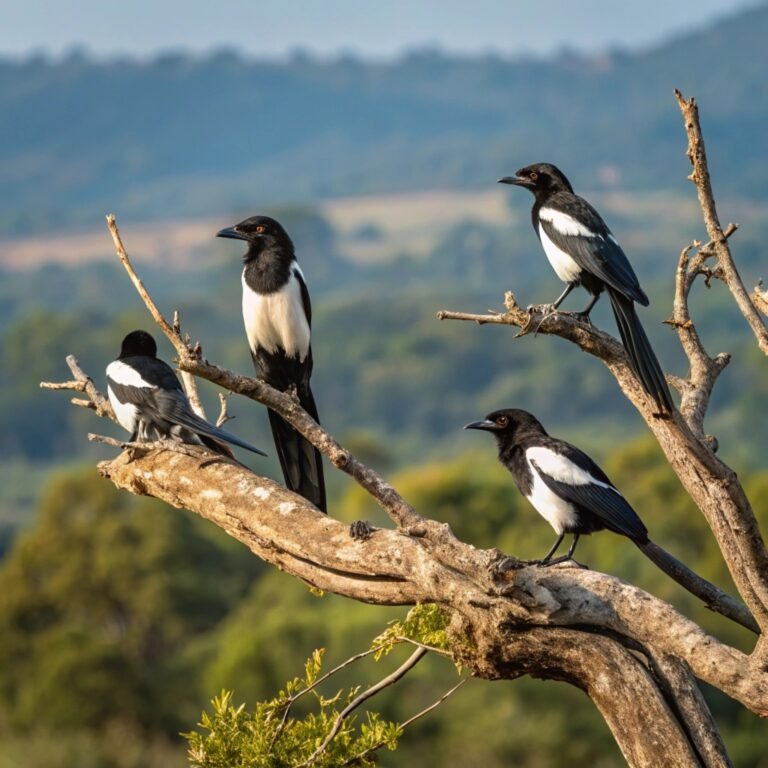What Foods Are Best for Ducks: A Comprehensive Feeding Guide
Ducks are fascinating creatures that bring joy and life to any backyard or pond.
Whether you’re raising ducks for eggs, meat, or simply as pets, providing them with the right diet is essential for their health and happiness.
Ducks are omnivores, meaning they thrive on a mix of plant-based and animal-based foods.
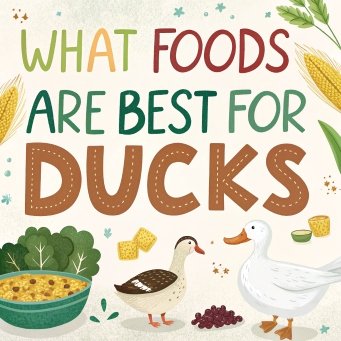
Key Takeaways:
- Ducks require a balanced diet with proteins, carbohydrates, fats, vitamins, and minerals to stay healthy.
- Protein is crucial for muscle growth, feather development, and egg production in ducks.
- Carbohydrates provide energy, and grains like corn, oats, and wheat are excellent sources.
- Leafy greens and vegetables such as kale, spinach, and carrots offer essential vitamins and fiber.
- Fruits like berries and apples can be occasional treats but should be given in moderation due to high sugar content.
- Insects and small fish are natural protein sources that mimic their wild diet.
- Avoid harmful foods like bread, citrus fruits, chocolate, onions, garlic, avocado, and salty snacks.
- Ducklings have unique dietary needs, requiring higher protein levels and niacin for healthy growth.
- Fresh water is essential, as ducks drink a lot daily and need it to aid digestion.
- Grit or shell grit helps ducks grind food in their gizzards and provides calcium for strong eggshells.
Now let’s explore each aspect of a duck’s diet in detail.
Understanding Ducks’ Nutritional Needs
Ducks have specific nutritional requirements that vary depending on their age, purpose (egg-laying or meat production), and activity level.
A balanced diet ensures they remain active and healthy.
- Proteins: Essential for muscle growth and egg production. Adult ducks need 14–18% protein in their diet.
- Carbohydrates: Provide energy for daily activities. Grains like corn and wheat are great sources.
- Fats: Help with insulation during colder months. A diet with 2–4% fat is ideal.
- Vitamins & Minerals: Ducks need vitamins A, D, E, K, calcium, phosphorus, and niacin for bone health and overall well-being.
Understanding these requirements will help you create the perfect feeding plan tailored to your ducks’ needs.
Best Protein Sources for Ducks
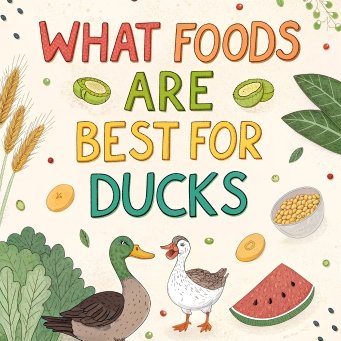
Protein plays a vital role in a duck’s diet. It supports muscle development, feather growth, and egg production.
Here are some excellent sources of protein for your ducks:
- Commercial Duck Feed: This feed is designed with the right protein levels (16–18%) specifically formulated for ducks.
- Insects & Grubs: Mealworms, crickets, and other insects mimic their natural diet and provide high-quality protein.
- Fish & Shellfish: Small fish or freeze-dried options provide excellent protein sources that ducks enjoy.
- Legumes & Seeds: Lentils and sunflower seeds offer plant-based protein that can supplement their diet effectively.
Tip: Ducklings require higher protein levels (20%) during their first two weeks of life to support rapid growth.
By ensuring an adequate protein intake, you can promote healthy growth in your ducks while enhancing their overall vitality!
Carbohydrates: Energy-Packed Foods
Carbohydrates are essential for keeping ducks active throughout the day. They can be found in grains, vegetables, and fruits.
Here’s a breakdown of carbohydrate-rich foods suitable for ducks:
- Grains: Corn, oats, barley, and wheat are staples in a duck’s diet that provide necessary energy.
- Vegetables: Root vegetables like carrots and sweet potatoes are excellent carbohydrate sources that also add variety to their meals.
- Fruits: Apples (seedless), berries, watermelon, and bananas can be occasional treats that provide natural sugars as well as hydration.
Note: While grains are vital for energy supply, avoid overfeeding them as excessive grain intake can lead to obesity among ducks.
A balanced approach will ensure your ducks remain energetic without compromising their health!
Leafy Greens & Vegetables
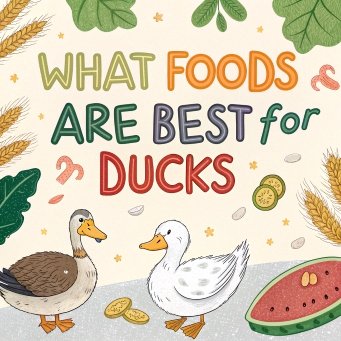
Leafy greens are a favorite among ducks due to their texture and taste. They provide fiber along with essential vitamins necessary for overall health.
Consider these nutritious greens:
- Kale & Spinach: Both are packed with vitamins A and K but feed spinach in moderation since it can affect calcium absorption if overfed.
- Lettuce & Cabbage: These leafy greens are easy-to-digest options that ducks love to munch on regularly.
- Pumpkin & Squash: Rich in fiber; chop them into small pieces before feeding to make it easier for ducks to eat.
Pro Tip: Float vegetables in water to make feeding more fun for your ducks! This not only adds variety but also encourages natural foraging behavior.
Including leafy greens ensures your ducks receive vital nutrients while enjoying their meals!
Fruits That Ducks Love
While fruits should not be a primary food source for ducks due to sugar content, they make excellent occasional treats that can enhance your duck’s diet.
Here are some fruits that ducks particularly enjoy:
- Berries: Strawberries and blueberries are rich in antioxidants that contribute positively to overall health.
- Watermelon: This hydrating fruit is especially refreshing during summer months when temperatures rise.
- Apples: Remove seeds before feeding as they contain toxins harmful to birds; apples can be sliced into manageable pieces for easy consumption.
Warning: Fruits should not constitute more than 10% of a duck’s diet due to high sugar content which may lead to health issues if consumed excessively.
Using fruits wisely as treats will keep your ducks happy while ensuring they maintain a balanced diet!
Insects & Small Fish: Mimicking Nature
Ducks naturally forage for insects and small aquatic creatures in the wild. These foods provide high-quality protein essential for growth and development.
Here are some great options:
- Mealworms & Crickets: Available dried or live; these snacks can serve as supplements or rewards during training sessions with your flock.
- Minnows & Small Fish: Freeze-dried fish or live minnows replicate their natural hunting instincts while offering valuable nutrients.
- Snails & Worms: Commonly found in ponds; these additions will enhance the dietary variety while mimicking what they would consume naturally outside.
Fun Fact: Watching ducks chase small fish can be entertaining! It also stimulates their natural instincts which is beneficial for mental health.
Incorporating insects into their diet adds excitement while ensuring they receive necessary nutrients!
Foods to Avoid Feeding Ducks
Not all foods are safe for ducks; some can cause severe health problems or even be fatal if ingested regularly.
Here’s a list of foods you should avoid:
- Bread & Crackers: These items offer no nutritional value; regular consumption can lead to malnutrition among your flock over time.
- Citrus Fruits: While they may seem harmless at first glance—citrus fruits interfere with calcium absorption which is crucial for strong bones and eggshells during laying season.
- Chocolate & Avocado: Both contain toxins harmful to birds; avoid these completely when feeding your flock!
- Onions & Garlic: These common kitchen staples can damage red blood cells leading towards anemia if ingested frequently by birds like ducks who have sensitive systems compared to humans.
- Salty Foods: Salty snacks cause dehydration issues along with potential kidney problems over time—keep those away from your feathered friends!
Remember: Always research before introducing new foods into your flock’s routine! Being informed will help you maintain optimal health standards within your group of quacking companions!
Feeding Ducklings: Special Considerations
Ducklings have different dietary needs compared to adult ducks due to their rapid growth rate during early life stages.
Here’s how you can cater specifically towards ducklings:
- Use chick starter feed with at least 20% protein during the first two weeks of life—this supports proper muscle development while ensuring overall vitality!
- Supplement niacin by adding brewer’s yeast or feeding niacin-rich foods like peas or sunflower seeds which help prevent leg issues commonly seen among young birds lacking this nutrient early on!
- Gradually reduce protein levels down towards 16–18% after two weeks once they’ve adjusted better into adulthood—this helps maintain balance without overwhelming them nutritionally!
Tip: Avoid medicated chick feed as it contains unnecessary medications that ducklings don’t need at such tender ages—keeping things simple works best here!
By paying attention closely towards specific requirements needed throughout various stages within life cycles ensures healthier outcomes overall!
Importance of Fresh Water
Ducks need constant access to clean water not only for drinking but also for eating purposes since they lack teeth! Water aids digestion while allowing them swallow food easily without choking hazards present otherwise!
Here are some tips regarding water provision:
- Provide shallow bowls filled with fresh water where ducklings can safely drink without risk of drowning occurring unexpectedly during playtime hours out around ponds/streams nearby!
- Change water frequently throughout each day especially during hot weather conditions—keeping it fresh prevents bacteria buildup leading towards potential illnesses later on down line if left unchecked too long!
- Add chopped vegetables or fruits into water occasionally as fun ways hydrate quackers while encouraging natural behaviors associated with finding food sources out within environments where they roam freely!
Maintaining clean water supplies ensures optimal health standards remain upheld across all members within flocks alike—always prioritize hydration needs first above all else!
Grit: Essential for Digestion
Ducks don’t have teeth; instead they utilize grit (small stones) found naturally within environments around them which helps grind food properly inside gizzards aiding digestion processes significantly!
Here’s how you can ensure proper grit intake among your flock:
- Offer grit free-choice so that each individual duck can eat it whenever needed throughout daily routines without restrictions imposed upon them unnecessarily—this promotes healthy habits surrounding eating practices overall!
- For egg-laying hens specifically provide shell grit which supplies calcium necessary towards producing strong eggshells—this becomes increasingly important especially during peak laying seasons when demands increase dramatically compared previous periods leading up until then!
Pro Tip: Oyster shells work well as an excellent source of calcium-rich grit—consider adding those alongside regular offerings made available too!
Providing adequate amounts ensures digestive systems function optimally while keeping everything running smoothly across board amongst all members present within flocks alike!
FAQs
What is the best commercial feed for ducks?
Look for feeds specifically formulated for ducks with 16–18% protein content designed specifically tailored towards meeting unique dietary requirements present among species involved here today! Avoid chicken feed unless supplemented with additional niacin since those won’t suffice alone without proper adjustments made accordingly beforehand too!
Can I feed my ducks kitchen scraps?
Yes! Ducks enjoy vegetable scraps like carrot peels or lettuce but avoid salty or sugary leftovers since those could prove detrimental long-term if consumed regularly over time instead sticking primarily towards healthier options available nearby instead!
How often should I feed my ducks?
Feed adult ducks twice daily—once in the morning followed by another serving later on evening hours alongside access provided continuously throughout entire day ensuring everyone remains satisfied adequately without feeling deprived whatsoever at any point along way either way here today!
Are there any seasonal changes in a duck’s diet?
Yes! In winter months reduce protein levels slightly (12–14%) since activity decreases overall during colder weather conditions present outside environment surrounding flocks involved here today altogether collectively speaking across board overall too! Increase protein during egg-laying seasons (16–18%) when demands rise significantly compared previous periods leading up until then too!
Can I give my ducks treats every day?
Treats should make up no more than 10% total diet provided overall across entire week/month cycles involved here today collectively speaking amongst all members present within flocks alike ensuring everyone remains satisfied adequately without feeling deprived whatsoever at any point along way either way here today! Focus primarily upon healthier options available nearby instead sticking primarily towards those instead moving forward together collectively speaking across board overall too!

Hello, I’m Emily Price, the founder of Birds Affection. As a passionate bird enthusiast and spiritual seeker, I’ve always been fascinated by the symbolic meanings and mystical connections between birds and our lives. On this website, I share my knowledge and insights on the spiritual significance of various bird species, exploring their roles as messengers, guides, and teachers. Through my writing, I aim to inspire and educate others on the profound wisdom and beauty that birds bring to our world. Join me on this journey as we delve into the enchanting realm of bird symbolism and discover the hidden meanings behind these magnificent creatures.

